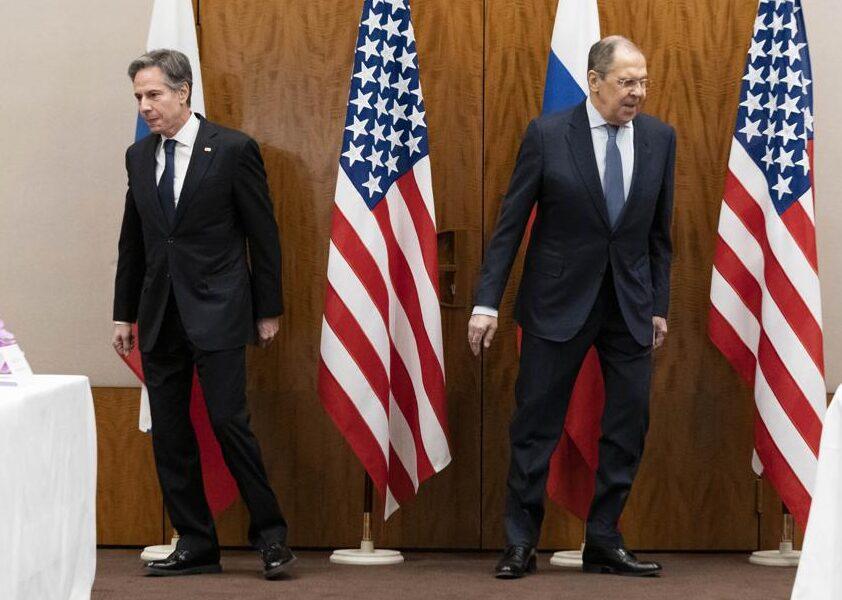Russian foreign minister Sergei Lavrov has accused the United States of trying to shatter the existing world order via the manipulation of international bodies and alliances.
Speaking on Russian state television’s Channel 1, Lavrov on April 26 accused the Biden administration and the West of no longer recognizing international law or the key provision of the sovereign equality of all states, despite Russia’s recent invasion of Ukraine’s sovereign territory.




